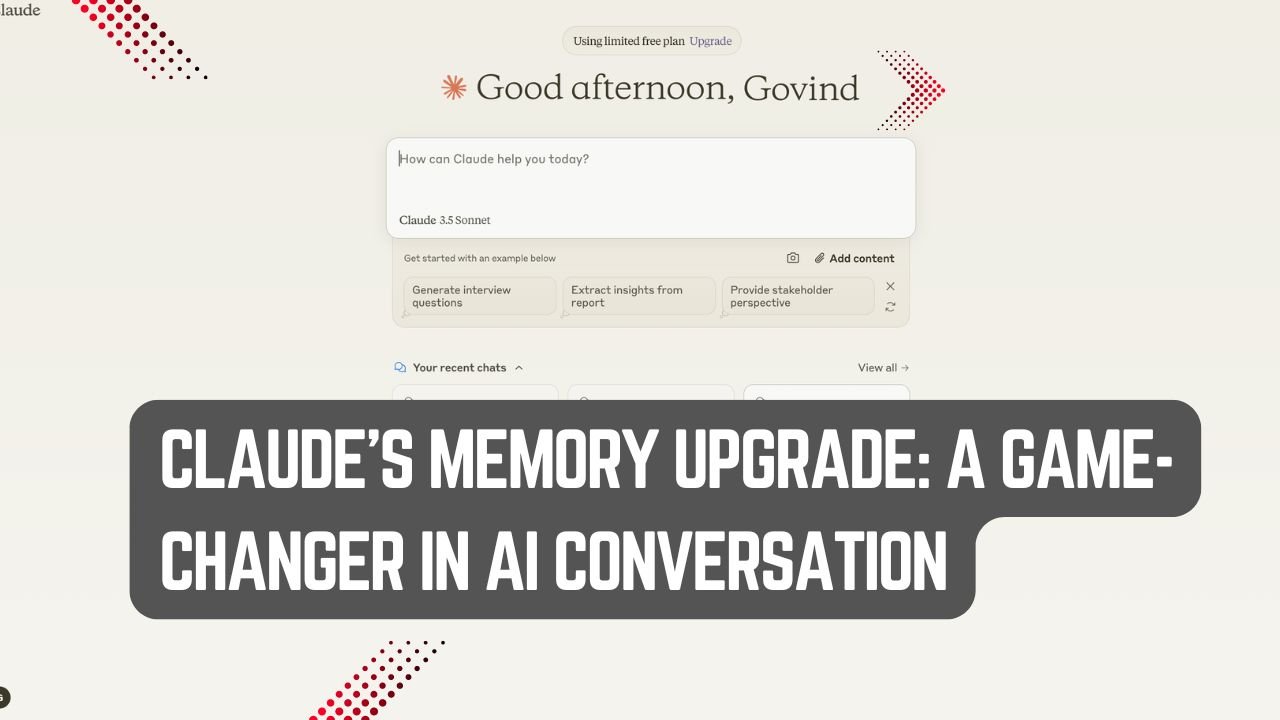Anthropic’s Claude has just received a major upgrade. The AI assistant now boasts long-term memory capabilities, putting it toe-to-toe with OpenAI’s ChatGPT. But what does this mean for you, me, and the future of AI interactions? Let’s dive in!
The Elephant That Never Forgets
Imagine having a conversation with someone who remembers every detail you’ve ever shared with them – your preferences, your past discussions, even that obscure fact you mentioned in passing months ago. That’s the level of recall Claude is now bringing to the table.
“It’s like talking to an old friend who’s been paying attention all along,” says Dr. Emily Chen, AI ethicist at Stanford University. “This kind of memory in AI is not just impressive; it’s transformative.”
What’s in Claude’s New Memory Bank?
Claude’s memory upgrade isn’t just about recalling facts; it’s about understanding context and providing more personalized interactions. Here’s what’s new:
- Elephant-Like Recall: Claude can now remember details from past conversations, making each interaction feel like a continuation of a long-standing relationship.
- User-Controlled Memory: Don’t want Claude to remember something? No problem! Users have the power to decide what stays and what goes in Claude’s memory banks.
- Cross-Domain Knowledge: Whether you’re coding, seeking medical advice, or planning a vacation, Claude’s memory works across various fields, providing context-rich responses.
Claude vs. ChatGPT: The Memory Olympics
While both Claude and ChatGPT now boast long-term memory, early user reports suggest some interesting differences.
“I’ve been using both for complex coding tasks,” says Alex Rodriguez, a software developer in Silicon Valley. “Claude’s memory seems more robust, especially when handling intricate, multi-step problems. It’s like it’s not just remembering, but truly understanding.”
The Implications: More Than Just Small Talk
This memory upgrade isn’t just about making chat more engaging. It has far-reaching implications:
- In Healthcare: Imagine an AI that remembers your entire medical history, providing doctors with instant, comprehensive patient backgrounds.
- For Customer Service: Say goodbye to repeating yourself. Claude could revolutionize customer support with its ability to recall past interactions and issues.
- In Education: Personalized learning could reach new heights with an AI tutor that remembers a student’s strengths, weaknesses, and learning style.
The Elephant in the Room: Privacy Concerns
With great memory comes great responsibility. The ability to remember so much information raises important questions about privacy and data security.
“We’re entering uncharted territory,” warns Dr. Chen. “The ethics of AI memory are complex. How do we ensure this information is used responsibly and not exploited?”
What’s Next in the AI Memory Race?
As Claude and ChatGPT continue to evolve, we’re likely to see an arms race in AI memory capabilities. This competition could drive rapid advancements in AI technology, potentially leading to even more sophisticated and helpful AI assistants.
The Bottom Line
Claude’s new long-term memory is more than just a feature update; it’s a glimpse into the future of AI-human interaction. As these systems become more personalized and context-aware, they have the potential to transform how we work, learn, and communicate.
So, the next time you chat with Claude, remember: it’s not just listening; it’s learning, remembering, and evolving. Welcome to the era of AI with a personal touch!
What are your thoughts on this memory upgrade? Are you excited about the possibilities, or concerned about the implications? Share your views in the comments below!

